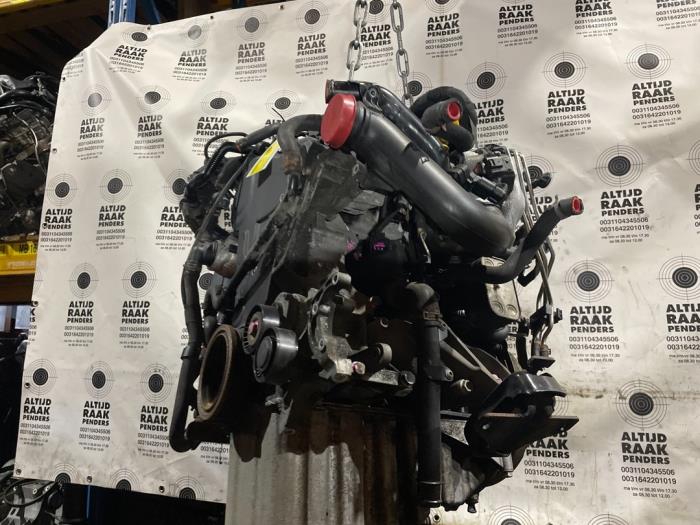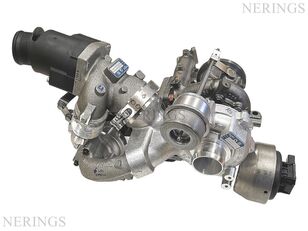Vital Factors To Consider and Tips for Choosing the Right Engine for Your Requirements
Selecting the appropriate engine is a complex decision that calls for cautious consideration of various variables to make sure optimal efficiency for your certain needs. The details of engine choice extend past these fundamentals, prompting a more detailed evaluation of crucial components that can eventually influence your fulfillment and success.
Determine Your Objective
Identifying your purpose is a crucial primary step in choosing the right engine for your requirements. Understanding the certain application you desire will lead your decision-making process and make certain that you choose an engine that straightens with your operational demands. Whether you require an engine for an industrial automobile, industrial equipment, or an entertainment job, each circumstance demands various efficiency qualities and capacities.
Take into consideration the environment in which the engine will certainly run. Will it be subjected to heavy lots, extreme temperatures, or extended usage? Evaluating these elements will certainly aid you identify the needed power result, fuel efficiency, and longevity needed to meet your goals.
Furthermore, assume about the long-term effects of your selection. Budget restraints, upkeep demands, and accessibility of components are crucial factors to consider that will certainly influence your total satisfaction and operational efficiency.
Ultimately, articulating your purpose will streamline the option procedure and encourage you to make a notified decision. By clearly defining your purposes, you can review possible engines a lot more successfully and select one that not only meets your existing needs but additionally sustains your future goals.
Evaluate Engine Specifications
As soon as you have actually clearly articulated your objective, the following step is to review engine specs. This process entails a detailed exam of different technical information that can substantially impact efficiency and suitability for your intended usage.
Begin by examining the engine's horsepower and torque rankings. Horsepower is crucial for determining the engine's capacity to carry out job, while torque is vital for understanding just how well it can manage heavy tons or acceleration. Furthermore, consider the engine variation, as it frequently associates with power result and effectiveness.
Following, take a look at the engine typeâEUR" whether it is a gasoline, diesel, or alternate fuel engineâEUR" as each type has distinctive qualities and applications. Pay focus to the engine's setup (e.g., inline, V-type), as this can impact dimension, weight, and overall efficiency.
Another crucial facet is the engine's cooling system, which can affect integrity and maintenance demands. Review the manufacturer's online reputation and service warranty offerings, as these can offer understandings into long-term performance and assistance. Extensively evaluating these specifications will assist make certain that you pick an engine that aligns with your functional objectives and details needs.
Take Into Consideration Fuel Performance
Gas performance is a vital aspect to take into consideration when picking an engine, as it straight influences operational expenses and environmental sustainability. An engine's fuel effectiveness is normally determined in miles per gallon (MPG) for automobiles or in certain gas usage (SFC) for aircraft and marine engines. Greater gas performance not just lowers the quantity of fuel taken in but also minimizes greenhouse gas emissions, making it a liable selection for try this web-site eco-conscious customers.
When examining engine choices, it is crucial to evaluate the driving conditions and intended usage. Engines enhanced for highway driving may exhibit much better fuel efficiency compared to those developed for stop-and-go website traffic. Furthermore, take into consideration the engine's innovation, such as turbocharging or hybrid systems, which can dramatically enhance fuel efficiency.
Assess Upkeep Requirements

Start by examining the manufacturer's suggested upkeep intervals and procedures. Some engines might require even more constant oil modifications, filter substitutes, or specialized servicing, which can affect your functional downtime. Additionally, think about the schedule of parts and the simplicity of getting them. Engines with widespread appeal typically have better components schedule, decreasing preparations throughout repairs.
One more essential aspect is the technical know-how needed for upkeep. Some engines might demand specialized training for specialists, which might limit your choices for solution companies. Assess whether the engine's design allows for very easy accessibility to parts usually requiring upkeep, as this can significantly impact labor expenses.
Budget Your Financial Investment
Recognizing upkeep view publisher site demands is just one aspect of selecting the appropriate engine; economic factors to consider play a similarly essential role (amarok engine for sale). Developing a clear spending plan is vital, as it affects not just the preliminary purchase price yet likewise long-lasting operational prices
When budgeting, think about both the in advance costs and recurring costs such as gas effectiveness, maintenance, and possible repair work. A seemingly economical engine might sustain higher prices in time because of bad fuel economic situation or regular upkeep requirements. Additionally, examine the availability and price of spare components, in addition to the service warranties used by makers, which can offer economic security versus unanticipated expenditures.
It is likewise sensible to consider possible financing alternatives or leasing plans, which can relieve immediate economic problems. Stabilize your need for sophisticated attributes with your budget restrictions, ensuring my response that you buy an engine that fulfills your efficiency needs without compromising financial security.
Inevitably, an all-round spending plan will equip you to make enlightened choices, aligning your engine selection with both your monetary capacities and operational requirements, causing an extra lasting investment in the long run.

Final Thought
In final thought, choosing the proper engine requires a complete understanding of certain demands and applications. Cautious assessment of engine specifications, gas performance, and upkeep requirements is important for informed decision-making.
Gas performance is a vital element to consider when choosing an engine, as it directly influences functional expenses and ecological sustainability. An engine's fuel efficiency is commonly determined in miles per gallon (MPG) for cars or in particular fuel intake (SFC) for airplane and marine engines. Diesel engines usually supply much better gas effectiveness than gasoline engines. Inevitably, choosing an engine with a strong focus on gas effectiveness can lead to substantial long-lasting savings and add positively to ecological efforts. Mindful examination of engine specifications, gas efficiency, and upkeep needs is crucial for notified decision-making.